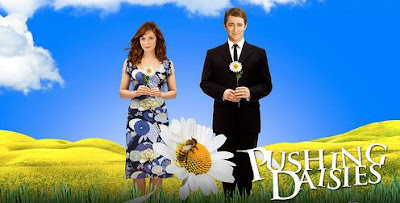
FACT! In no particular order, these are things currently and in some cases, constantly pissing me off...
The fact that in this election, many will vote based entirely on whether a candidate is black, female or none of the above...
The fact that while watching the news each morning, at least once I have to say "why the hell do they feel I need to start my day with that depressing piece of information"..?
The fact that women, as a whole, seem less interested in what "men" think about how they look than they are with what total strangers, most of them judgmental "females" think. Real men love curves, real men like you to go easy on the make up, real men like you for what and who you are, not for what you "think" you should be because of what those mongoloids Tyra and Oprah tell you...
The fact that regardless of how often you tell someone how much something they do or don't do effects you, they seem to almost want to do it, or not do it all the more...or less...
The fact that people think it's alright to put the entire body of their e-mail within the subject line...
The fact that the more I prove myself to be a good judge of character, people STILL feel they have to fight me when I say that someone is going to cause problems, and when they do, (and they ALWAYS do) I never seem to get an "I'm sorry, you were right"...
The fact that I don't know how long I have to wait for the second season of "Breaking Bad"...
The fact that of all the releases that Southern Lord has put out, the one I looked forward to the MOST has taken nearly 2 months to arrive and is, in fact, STILL not here...
The fact that American Idol is still on, and people are still watching it and think that talking about it the next day makes them sound like anything but a moron...
The fact that I am still on MySpace even though 1) time and time again it has failed to function properly, 2) most of the time I am just denying bands that suck to high heaven, 3) it's a haven for back-stabbing and useless comments, and 4) it's caused more problems in my life than any single thing has...
The fact that I am an open book, and everyone seems to love that fact except for some of the people I would love to love it the most...
The fact that I am 35 and don't have my journalism degree yet...
The fact that I have to use the word "divorced" when someone asks if I've ever been married...
The fact that I am not yet a father...
The fact that I will never be the president of, owner or have anything to do with Amyx Manufacturing or Amyx Industries Ltd. since it was sold many years ago and has since been shut and torn down with NO record of it's existence going to me what-so-ever...
The fact that "Krush Groove" was on last night, and I actually watched most of it...
The fact that I'm still pissed that "Studio 60 on the Sunset Strip" was canceled ("The Black Donnelly's" too)...
The fact that I miss "Medium" all the time because it was off for so long and I am as far behind on it as I can possibly be...
The fact that I am terrible at French...
The fact that although I embrace my Irish heritage, the only people who have given me shit, and in fact been utter pricks have been "Proper" Irish folk...
What has me SO angry...(((03)))
 One of the most brilliant shows to appear on "regular" TV is Pushing Daisies. As soon as I heard Barry Sonnenfeld was involved, I of course set my DVR to record and have every episode so far (9 out of an original 13 episode order. 22 episode original projection). As I'd feared, the 10th-13th episodes were interfered with by that dumb-fuck writer's strike (like most of you people are really fucking writing anything anymore), and the 9th was re-written as the season finale. The new season will begin production between March and June of this year. Keep your eye out for this show. I'm not joking, this is brilliant TV. Take a look at the Wiki page on it to see all the reasons it rules.
One of the most brilliant shows to appear on "regular" TV is Pushing Daisies. As soon as I heard Barry Sonnenfeld was involved, I of course set my DVR to record and have every episode so far (9 out of an original 13 episode order. 22 episode original projection). As I'd feared, the 10th-13th episodes were interfered with by that dumb-fuck writer's strike (like most of you people are really fucking writing anything anymore), and the 9th was re-written as the season finale. The new season will begin production between March and June of this year. Keep your eye out for this show. I'm not joking, this is brilliant TV. Take a look at the Wiki page on it to see all the reasons it rules.


















































